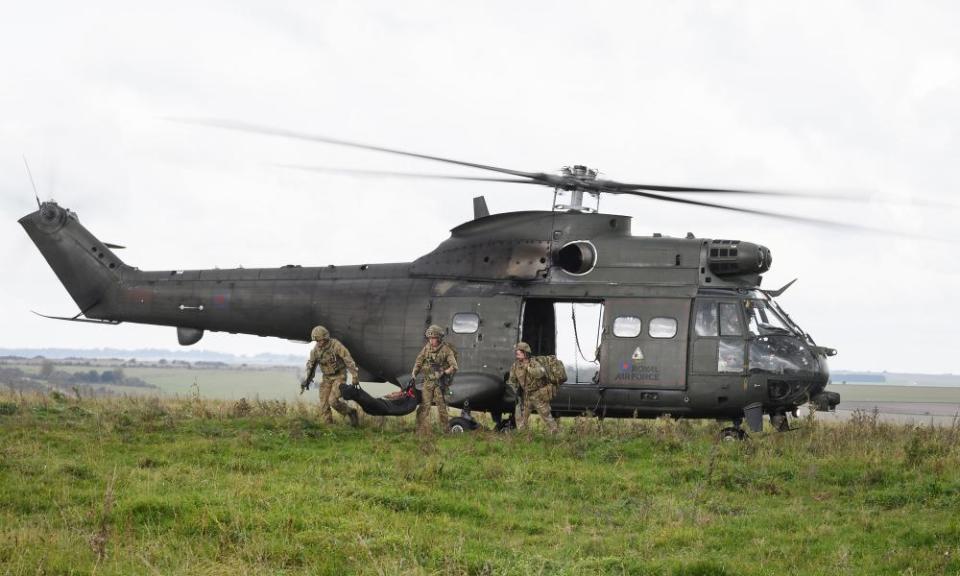Peers vote to halt plans to limit UK soldiers’ accountability for war crimes

Peers have inflicted a significant defeat on the government, voting by 333 to 228 to halt plans to restrict prosecutions of torture and war crimes by British soldiers serving abroad.
A group led by former Nato secretary general George Robertson, and supported by some former military chiefs, told peers they wanted torture and war crimes to be excluded from a five-year limit on prosecutions proposed in the overseas operations bill.
Related: The UK government is attempting to bend the rules on torture | Nicholas Mercer
Lord Robertson, who was also a Labour defence secretary, told peers the government’s plan “undermines some of the most basic legal standards for which this nation was renowned”.
By restricting torture and war crime prosecutions in the British courts, it could mean that “our troops might, for the first time, have to appear in front of the international criminal court”, Robertson added.
Ministers say they want to prevent British soldiers who have served in Iraq, Afghanistan and elsewhere from being subject to vexatious prosecution, and the measure is a core part of the bill, which cleared the Commons in November. They argue there is an exception to the five-year limit, in cases where the attorney general gives consent.
Speaking against the amendment, Annabel Goldie, a junior defence minister, said the bill provided “the appropriate balance” between victims’ rights and “a fair and deserved level of protection” for service personnel.
Labour, the Liberal Democrats and an overwhelming majority of crossbench peers supported the amendment at Tuesday’s report stage, including the former head of the armed forces Jock Stirrup. Two Conservatives also joined the rebels, Sayeeda Warsi and James Mackay, a former lord chancellor.
Campaign groups welcomed the vote. Dan Dolan, the deputy director of Reprieve, said: “The scale of this defeat and the breadth of the coalition against this dangerous bill should give the government pause. How can Britain take a stand against torture globally, if we have effectively decriminalised it ourselves?”
War crime and torture prosecutions can take years to put together. An Afghan citizen has brought a civil claim in the British courts after his father, two brothers and a cousin were killed during a raid on a compound in southern Afghanistan in 2011.
The case is one of 33 alleged executions undertaken by SAS soldiers from a decade ago for which no criminal prosecution has been brought. But evidence that emerged in the civil action resulted in one SAS officer describing the episode as “the latest massacre”.
Related: Labour to avoid revolt by voting against overseas operations bill
After the vote, Robertson called on the government to “think again”. The amendment is expected be put back to the Commons towards the end of the month, alongside other changes called for by peers.
Ministers have not shown any appetite for conceding on the issue. However, supporters of the amendment hope they have some extra leverage over the government because the parliamentary session is due to end in less than a month.
A bill not passed in a single session normally falls, although ministers have the option of passing a motion to “carry over” a bill to the next session, which is due to start with a Queen’s speech on 11 May.
A separate amendment supported by Lord Stirrup, due to be debated later on Tuesday evening would, if passed, ensure there was no time limit on civil claims being brought by current and former service personnel against the Ministry of Defence (MoD). Currently, the legislation proposes a separate six-year time limit.
A UK government spokesperson said the overseas operations bill was aimed at addressing “the endless legal cycles and repeated investigations” faced by service personnel.
The spokesperson added: “None of the proposals will erode the rule of law; the MoD and our service personnel can still be held to account for wrongdoing. Military operations will continue to be governed by international humanitarian law, including the Geneva conventions.”

 Yahoo Finance
Yahoo Finance 